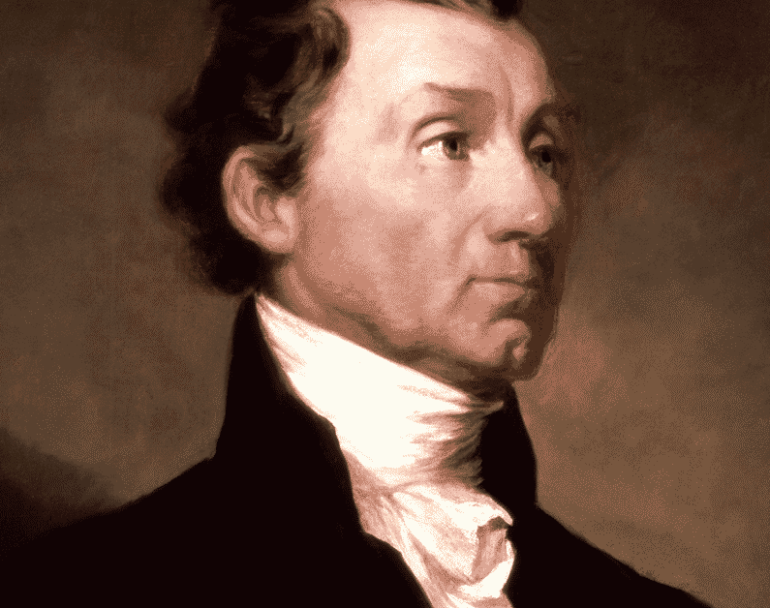
Today in History: James Monroe was Born
By: Dave Benner
n April 28, 1758, James Monroe was born.
Monroe served in the Continental Army during the War of Independence, where he was wounded and almost died in the Battle of Trenton. Thereafter he studied law under George Wythe, who had also taught Thomas Jefferson. Opposed to the Constitution, he became the only Anti Federalist to be elected president.
Monroe was Minister to France during Washington’s term, where he helped secure the release of Thomas Paine, who was awaiting execution. During the Reign of Terror, he also negotiated the release of American prisoners, and befriended many of the most famous French republicans, including Marquis de Lafayette. Enraged by Washington’s Neutrality Proclamation, Monroe believed the United States had a vested and moral interest in supporting the French Republic.
Aligning himself with the interests of Jefferson and Madison’s Republican Party, he strongly opposed the national bank, Jay Treaty, and the Quasi War with France. His strong pro-French proclivities even met the chagrin of George Washington, who scolded Monroe and dismissed him from his civil position. During Jefferson’s term he was tasked alongside Robert Livingston to negotiate a Treaty with Napoleon to purchase New Orleans. Beyond this goal, Monroe was instrumental in acquiring the entire Louisiana territory at an extremely cheap rate.
With the assistance of Secretary of State John Quincy Adams, Monroe ingeniously purchased Florida from Spain at a cheap rate by pointing out the ease at which Andrew Jackson, albeit through insubordination, had conquered it. He oversaw the sectional divide that occurred during the Missouri Crisis, where the federal government tried to impose an ultimatum upon a state in return for its incorporation into the union for the first time. He again turned to Adams for the act he is most famous for, the Monroe Doctrine, which called for the United States to refrain from entering into European wars and alliances, while committing to resistance against further European colonization in the western hemisphere.
Despite the numerous political challenges before him, Monroe remained committed to republicanism, adhered to the constraints of the Constitution, bemoaned factional political divides, and believed in a frugal and subdued government. While he presided over an era which has been called by some historians as “The Era of Good Feelings,” a multitude of divisive interests took hold. Still, Monroe tackled most of these challenges effectively while restoring faith in American’s federal system and maintaining a Jeffersonian disposition.